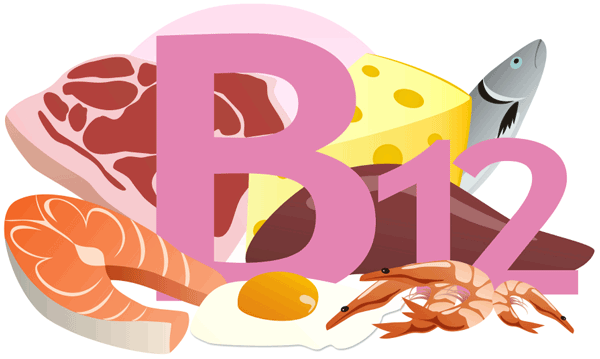You could be low in vitamin B12 if you’re experiencing fatigue, mood imbalances, nerve problems, if you’re elderly, have Celiac disease, inflammatory bowel disease, if you take antacid medication like Nexium, Prevacid, Zantac or Prilosec, or if you consume a vegetarian/vegan diet. If you consume large amounts of alcohol (binge drinking), you are greatly depleting your B12 stores.
In Canada, we set our “normal” vitamin B12 range between 145-674 pmol/L, so if you visit your MD for your regular check up and you get a value within this range, nothing will be flagged. However, now we understand that OPTIMAL levels are actually closer to 1000 or higher.
People often ask me if B12 injections will help them lose weight. Advertising B12 shots for weight loss is a common trick used by beauty clinics, because it feels like we’re always trying to lose an extra 5-10 pounds! There is indirect evidence that B12 levels are implicated in weight control. Studies show that overweight or obese individuals tend to have lower levels of B12. That doesn’t necessarily mean that more B12 will help you to lose weight. But there are LOTS of other things that can help with that…(feel free to book a complementary consult to ask me more about this)!
B12 injections can be an effective therapy for relieving back pain when they’re performed at local pain points as a way to relieve muscle tension.
B12 injections can be an extremely effective therapy for peripheral neuropathy.
B12 is absolutely necessary for DNA synthesis and cellular energy production – which can have broad implications. You can also imagine why B12 deficiency carries even more risk for pregnant women and the developing fetus.
Consider having your B12 levels checked (yes, Naturopathic Doctors can order bloodwork) and optimizing your B12 for optimal ENERGY and health.
In the meantime, consider increasing your intake of the foods listed below to boost your B12:
- Liver, beef, braised, one slice: 48.0 micrograms (mcg) per serving
- Clams, cooked, 3 ounces: 34.2 micrograms (mcg) per serving
- Trout, rainbow, wild, cooked, 3 ounces: 5.4 micrograms (mcg) per serving
- Salmon, sockeye, cooked, 3 ounces: 4.8 micrograms (mcg) per serving
- Trout, rainbow, farmed, cooked, 3 ounces: 3.5 micrograms (mcg) per serving
- Haddock, cooked, 3 ounces: 1.8 micrograms (mcg) per serving
- Yogurt, plain, 1 cup: 1.4 micrograms (mcg) per serving
- Beef, top sirloin, broiled, 3 ounces: 1.4 micrograms (mcg) per serving
- Tuna, white, 3 ounces: 1.0 micrograms (mcg) per serving
- Milk, 1 cup: 0.9 micrograms (mcg) per serving
- Cheese, Swiss, 1 ounce: 0.9 micrograms (mcg) per serving
- Ham, cured, roasted, 3 ounces: 0.6 micrograms (mcg) per serving
- Egg, large, one whole: 0.6 micrograms (mcg) per serving
- Chicken, roasted, half breast: 0.3 micrograms (mcg) per serving
Of course, you are always welcome to book a 15 min complementary consultation with me if you’d like to learn more about how I practice or what I can help you with.
Yours in health,
Dr. Natalie



I became vegetarian about 4 years ago. I still eat some seafood, but not very often. I think I have not had any in about 6 months. I will let you know if I need the shots, and of course I will take them if I have to. Not ideal, but sometimes necessary. Thanks.
Hard to say without a symptom picture or a test! But the good news is that we can easily measure vitamin B12 in the blood. You could visit your MD or ND and ask them to test your B12 levels. Hope that helps!